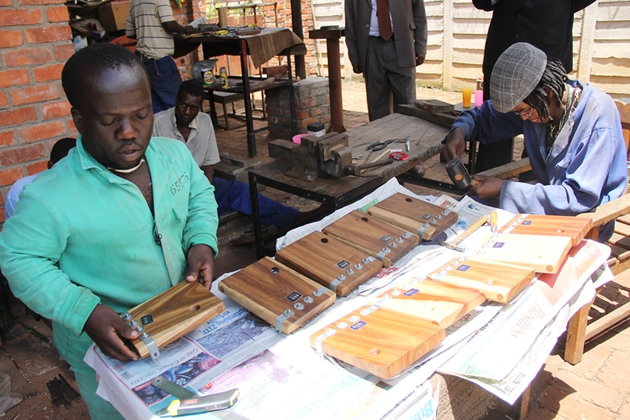Children are victims of domestic violence too!

Blessing Mushohwe
Domestic violence is a cancer that has wreaked havoc in our society for centuries with no end in sight. Generation after generation has fought with laws, religion and other means to stop it but, like a stubborn stain, it has remained part of our daily lives, destroying relationships and families and at times causing serious injury and death of our loved ones.
Writers, legislators, the police, the judiciary and NGOs, among others, have all fought hard, lobbied and advocated against domestic violence but it still rears its ugly head in our homes, sometimes with even stronger determination.
In all the efforts to stop domestic violence, focus has always been on women against violence by men.
Of late, interest is growing on men as domestic violence victims.
Little attention has been given to the little boy crying in the corner, the little girl hiding in the next room, the little boy trying to save his mother from
bashing and indeed the little girl nursing her mother’s wounds with salted water after a domestic violence scene in the family.
That little boy or girl is equally a victim of the domestic violence that he/she is witnessing. It’s sad indeed that children come as an afterthought in solving domestic violence issues.
This is despite the fact that the law itself does recognise children as victims of domestic violence.
The Zimbabwean Domestic Violence Act [Chapter 5:16] in sections 2(b) and 3(l)(v), among others, mentions children as among possible complainants in domestic violence cases.
As such, children are equally affected by domestic violence as any other category of victims.
Research elsewhere shows that 10-20 percent of children in the world are at risk of exposure to domestic violence which loosely translates to 3,3 million to 10 million children. In about 30-60 of families experiencing domestic violence, there are children affected. This is not an insignificant number.
Children can be involved with domestic violence in different ways such as being in the same room where it is happening and may get hurt in the crossfire. Some just hear the violence while in another room whereas others see the physical injuries on the victim in the family. Some children are forced to participate in the domestic violence either in hurling insults or in inflicting the physical pain on the victim while some; especially girls may be subject to the extension of the violence through physical and sexual abuse. The scenarios are quite diverse.
The scars and trauma of domestic violence usually last a lifetime and can completely negatively shape the behaviours of children as they grow into adulthood.
Research shows that as a result of domestic violence in the home, children can have behavioural, social and emotional problems such as higher levels of aggression, anger, hostility, oppositional behaviour, alcohol and drug abuse, disobedience, fear, anxiety, withdrawal, depression, poor peer-sibling and social relationships and indeed low self-esteem.
Domestic violence can also cause cognitive and attitude problems in children such as lower cognitive functioning, poor school performance, lack of proper conflict resolution skills, pro-violence attitudes and a belief in rigid gender stereotypes and male privilege among other problems. Domestic violence destroys our children by teaching them to tolerate the use of violence in solving problems.
Something has to be done and soon. For a start, when we talk of domestic violence, let’s talk about the children involved.
Professionals working in domestic violence situations should be specially trained to ask questions about the children; investigate their involvement; interview them in order to ascertain the extent of the impact on the kids and appropriately report it to the relevant officials handling the matter.
The media should play its societal role in informing the public about the dangers of exposing children to domestic violence. The police and other professionals involved should equally be vigilant on domestic violence as regards children.
Children have the right to protection against violence, abuse and harmful social and cultural practices and it is time that the society as whole becomes serious about standing up for our children.
Before you hurl that insult, before you point that finger, before you raise that hand to hit, before you use that shambok to beat up your wife; think about that little boy crying in the corner, the little girl hiding in the next room, the little boy trying to save his mother from bashing and indeed the little girl nursing her mother’s wounds with salted water after a domestic violence scene in the family. Think about it.
If we can’t save all the children from the devastating effects of domestic violence at once, lets save one at a time. However slow the progress we make, we will conquer if we all play our part, if we remember children every time we hear of domestic violence.
- Blessing Mushohwe is a Child Rights and Policies Consultant who writes in his personality capacity. For feedback, please contact him on [email protected]









Comments